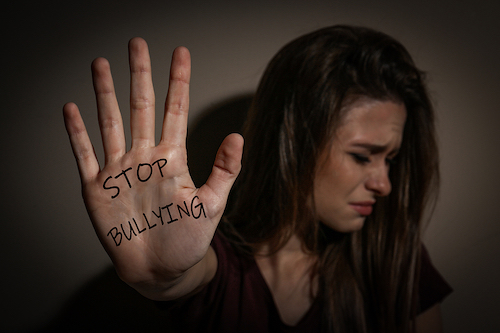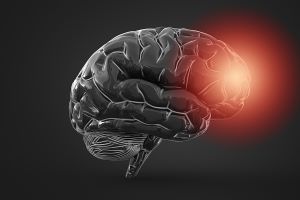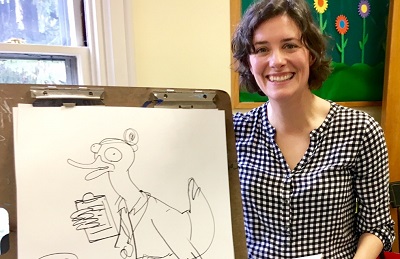March 23, 2021
by Patricia Tomasi

A new study published in PNAS, the Proceedings of the National Academy of Sciences of the United States of America, looked at how maternal stress triggers preterm birth. “Our study focused on uncovering the cellular mechanisms underlying preterm birth triggered by maternal stress,” study lead author and co-principal investigator, Ozlem Guzeloglu-Kayisli told us.
[More]
March 16, 2021
by Elizabeth Pratt

Time spent outside and nature-based activities could counteract some of the negative mental health impacts of COVID-19 on adolescents.
Researchers from North Carolina State University found that outdoor based activities helped teens cope with major stressors, and restricting such opportunities could have negative mental health implications.
[More]
February 26, 2021
by Elizabeth Pratt

Teenagers who bully may be using aggression as a technique to climb the social ladder.
Research from UC Davis published recently in the American Journal of Sociology found that teens who harass, bully or victimize their peers don’t always do this due to an unhealthy home environment or due to psychological problems, but out of a desire to strategically move up in a school’s social hierarchy.
[More]
February 23, 2021
by Patricia Tomasi

A new study published in the journal, PNAS (Proceedings of the National Academy of Sciences of the United States of America) looked at how childhood self-control forecasts the pace of midlife aging and preparedness for old age. “We studied whether as adults, children who exercise better self-control age more slowly, and are more prepared to manage the health, financial, and social demands of later life,” study author Leah Richmond-Rakerd told us. “We also investigated whether self-control in adulthood – not just childhood – is important for aging.” Prior studies have shown that people with better self-control live longer lives. Richmond-Rakerd and the team predicted that people with better self-control would also age more healthily, in midlife.
[More]
December 22, 2020
by Patricia Tomasi

Vitamin D is one of the most common nutrient deficiencies in the US and around the world. It can be challenging to get adequate Vitamin D from the diet, and not everyone produces enough Vitamin D in their skin to make up for this gap. A new study published in the Journal of Nutrition looked at pregnancy, nutrition, and Vitamin D.
[More]
December 1, 2020
by Patricia Tomasi

A new study published in the Journal of American Academy of Pediatrics looked at kindergarten readiness, later health, and social costs. “We used kindergarten readiness measures to forecast later academic, psychological, and health risks by end of high school,” study author Linda Pagani told us. “We wanted long term evidence of the importance of ensuring that all children are ready to learn at the time of school entry was crucial to support the idea of that prevention for all kinds of social problems have their origins in early childhood.”
[More]
November 17, 2020
by Patricia Tomasi

A new study published in the Proceedings of the National Academy of Sciences of the United States of America looked at the brain and impulsiveness. “In this study we investigated how the locus coeruleus (LC), the main source of norepinephrine (NE) in the brain, regulates attention and impulsivity,” study author Andrea Bari told us. “These cognitive functions are essential in everyday life and found to be impaired to various degrees in several pathologies, most prominently in children with attention deficit / hyperactivity disorder (ADHD).”
[More]
November 6, 2020
by Tina Arnoldi

Recently, Vermont’s Center for Cartoon Studies released “Let’s Talk About It: A Graphic Guide To Mental Health”, a 24-page comic book geared toward middle and high school students. Cara Bean, a cartoonist and art educator who collaborated on this project, shared her experience with this project.
[More]
November 3, 2020
by Patricia Tomasi

A new study published in the Journal of Child Psychology and Psychiatry looked at maternal prenatal body mass index (BMI) and human fetal brain development. “Given knowledge that the physical well-being of a mother during pregnancy is important for the long-term brain health of her child, we sought to discover whether and how maternal body mass index may relate brain development in the womb,” senior study author, Dr. Moriah E. Thomason told us.
[More]
October 27, 2020
by Patricia Tomasi

A new study looked at the treatment of insured children (average age 12) after they experience a first mental health episode. Most of these children were experiencing anxiety or depression. “We looked at the treatment of these children received in the three months after the incident and focused on whether they had received any follow-up care in that interval, whether they received any therapy, and the types of drugs they received if they received drugs,” study author Janet Currie told us.
[More]